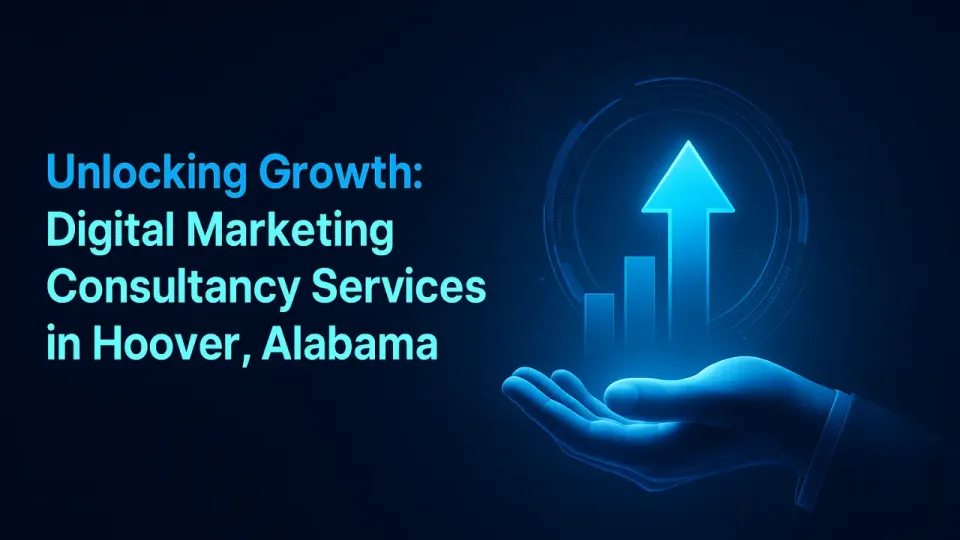The Importance of Analytics in Marketing for Small Business

In today's fast-paced digital world, small businesses need every advantage to stand out and succeed. One of the most powerful tools at their disposal is marketing analytics. By using data to drive decisions, small businesses can transform their marketing strategies, making them more effective and efficient.

Marketing analytics involves collecting, analyzing, and interpreting data from various sources to understand how well your marketing efforts are working. It’s not just for big corporations—small businesses can benefit immensely from using analytics to gain insights into customer behavior, track campaign performance, and optimize marketing spend.
At Zenogram Digital Marketing Agency, we believe in empowering businesses with the knowledge and tools they need to thrive. Our expert team uses advanced analytics to help clients achieve measurable results, enhance customer engagement, and drive business growth. In this article, we'll explore the importance of marketing analytics for small businesses, showing you how to leverage data to make smarter, more profitable decisions.
Understanding Marketing Analytics
Marketing analytics is the backbone of a successful marketing strategy, providing vital insights that guide your decisions and actions. But what exactly is marketing analytics?
Definition and Basics
Marketing analytics is the practice of measuring, managing, and analyzing marketing performance to maximize its effectiveness and optimize return on investment (ROI). It involves gathering data from various marketing channels, such as your website, social media, and email campaigns, and then analyzing this data to understand what’s working and what’s not.
"Joining this community has been a game-changer for staying updated on the latest trends & events!" - John B.
Types of Analytics
To get the most out of your data, it's important to understand the different types of analytics:
- Descriptive Analytics: This type of analytics looks at past performance to understand what happened. It involves tracking key metrics such as website traffic, click-through rates, and conversion rates.
- Diagnostic Analytics: Once you know what happened, diagnostic analytics helps you understand why it happened. This involves diving deeper into the data to identify patterns and correlations.
- Predictive Analytics: This type uses historical data to predict future outcomes. By understanding past trends, you can make informed predictions about future customer behavior and marketing performance.
- Prescriptive Analytics: The most advanced type, prescriptive analytics, not only predicts future outcomes but also suggests actions to achieve desired results. It helps in making strategic decisions based on data-driven insights.
Tools and Software
To effectively harness the power of marketing analytics, small businesses can use a variety of tools and software. Here are some key ones:
- Google Analytics: A free tool that provides detailed insights into your website traffic and user behavior.
- HubSpot: A comprehensive platform that offers analytics for your entire marketing funnel, from website traffic to lead conversion.
- SEMrush: A powerful tool for SEO analytics, helps you understand how your website is performing in search engines and how you can improve.
At Zenogram, we leverage these tools and more to provide our clients with clear, actionable insights. By understanding the basics of marketing analytics and using the right tools, small businesses can turn data into a powerful asset, driving better decisions and achieving greater success.
Benefits of Marketing Analytics for Small Businesses
Marketing analytics offers a wealth of benefits that can significantly enhance the performance and growth of small businesses. One of the most compelling advantages is improved decision-making. With analytics, businesses can base their decisions on solid data rather than guesswork. This means marketing strategies can be fine-tuned for better results, leading to more effective campaigns and higher ROI.
Another major benefit is cost efficiency. Small businesses often operate with limited budgets, making it crucial to allocate resources wisely. Marketing analytics helps identify which channels and tactics are delivering the best results, allowing businesses to focus their spending on what works. This not only maximizes the impact of their marketing efforts but also ensures that every dollar is spent wisely.
Customer insights gained through marketing analytics are invaluable. By analyzing data from various sources, businesses can gain a deeper understanding of their customers' behaviors, preferences, and needs. This knowledge enables them to tailor their marketing messages and offers to better meet customer expectations, enhancing customer satisfaction and loyalty.
Furthermore, marketing analytics helps track and measure the performance of marketing campaigns in real-time. This allows businesses to quickly identify any issues or opportunities for improvement and make necessary adjustments on the fly. The ability to respond swiftly to changing market conditions can provide a significant competitive advantage.
In summary, marketing analytics empowers small businesses to make smarter, data-driven decisions, optimize their marketing spend, gain deep customer insights, and continuously improve their marketing strategies. By leveraging these benefits, small businesses can achieve greater efficiency, effectiveness, and growth in their marketing efforts.

Implementing Analytics in Your Marketing Strategy
Implementing marketing analytics in your strategy can seem daunting, but with a structured approach, it becomes manageable and highly rewarding. The first step is setting clear goals and key performance indicators (KPIs). These goals should align with your overall business objectives and be specific, measurable, achievable, relevant, and time-bound (SMART). KPIs will help you track progress towards these goals, providing a benchmark for success.
Once your goals are set, the next step is data collection. There are various methods to gather data, including website analytics, social media metrics, and email marketing statistics. Website analytics tools like Google Analytics can track visitor behavior, page views, and conversion rates, giving you a comprehensive view of how users interact with your site. Social media platforms offer their own analytics, providing insights into engagement, reach, and audience demographics. Email marketing services can track open rates, click-through rates, and conversion rates, helping you understand how well your email campaigns are performing.
After collecting data, the critical phase of analyzing and interpreting it begins. This involves looking for patterns, trends, and correlations that can inform your marketing strategies. For instance, if you notice that a particular blog post drives significant traffic and conversions, you might decide to create more content on similar topics. Analyzing data can also reveal less obvious insights, such as the best times to post on social media or which marketing channels yield the highest ROI.
To make the most of your data, it’s important to use the right tools and techniques. Many analytics tools come with built-in features for data visualization, which can help you understand complex data sets at a glance. Techniques such as A/B testing can be invaluable, allowing you to compare different versions of a marketing asset to see which performs better. Regularly reviewing and updating your analytics strategy ensures you stay aligned with your business goals and can adapt to changes in the market.
By setting clear goals, collecting the right data, and analyzing it effectively, small businesses can integrate marketing analytics into their strategies seamlessly. This data-driven approach not only enhances marketing efficiency and effectiveness but also drives continuous improvement and growth.
Case Studies of Small Businesses Successfully Using Analytics
To illustrate the transformative power of marketing analytics, let's look at a few case studies of small businesses that have achieved remarkable success by leveraging data-driven strategies.
Case Study 1: The Local Coffee Shop
A small coffee shop in a bustling urban area faced intense competition and struggled to stand out. By implementing marketing analytics, the shop's owner could gain valuable insights into customer behavior and preferences. Using Google Analytics, they discovered that their website's blog posts about coffee brewing techniques and recipes were particularly popular. They decided to focus more on creating similar content and promoting it through social media and email newsletters. Additionally, they used social media analytics to identify the best times to post and engage with their audience.
The results were impressive. The coffee shop saw a significant increase in website traffic and social media engagement, which translated into higher foot traffic and sales. By understanding what their customers valued and when they were most active online, the shop was able to tailor its marketing efforts more effectively, leading to increased brand loyalty and revenue.
Case Study 2: The Boutique Clothing Store
A boutique clothing store in a small town wanted to expand its online presence and boost e-commerce sales. They turned to marketing analytics to understand their online customer base better. Using tools like Google Analytics and SEMrush, they analyzed website traffic, search engine rankings, and customer demographics. They found that a significant portion of their visitors were coming from blog posts about fashion trends and styling tips.
Based on these insights, the boutique revamped its content strategy to focus more on fashion advice and trend reports. They also optimized their website for relevant keywords to improve search engine rankings. Furthermore, email marketing analytics revealed that personalized email campaigns featuring new arrivals and exclusive discounts had higher open and conversion rates. The store implemented more personalized email strategies, segmenting their email list based on customer preferences and purchase history.
The boutique experienced a substantial increase in online sales and customer engagement. By aligning their content and email marketing strategies with the interests and behaviors of their customers, they were able to create a more personalized and effective marketing approach.
Lessons Learned
These case studies highlight several key takeaways for small businesses looking to leverage marketing analytics:
- Understand Your Audience: Use analytics to gain deep insights into customer behavior, preferences, and demographics. This knowledge allows you to tailor your marketing efforts to meet their needs and interests.
- Focus on What Works: Identify the most effective content, channels, and strategies through data analysis. Concentrate your resources on these areas to maximize impact and ROI.
- Personalize Your Marketing: Use data to create personalized marketing campaigns that resonate with your audience. Personalized content and offers are more likely to engage and convert customers.
- Continuously Optimize: Regularly review and analyze your data to identify areas for improvement. Marketing analytics is an ongoing process that helps you stay agile and responsive to changing market conditions.
By learning from these success stories, small businesses can see the tangible benefits of incorporating marketing analytics into their strategies. These examples demonstrate that even with limited resources, data-driven decisions can lead to significant growth and success.
Case Studies of Small Businesses Successfully Using Analytics
Challenges and Solutions in Marketing Analytics
While the benefits of marketing analytics are clear, small businesses often face several challenges when implementing these strategies. Understanding these obstacles and finding practical solutions is crucial for successfully integrating analytics into your marketing efforts.
Common Challenges
- Data Privacy Concerns: With increasing regulations around data privacy, such as GDPR and CCPA, small businesses must ensure they collect and handle data responsibly. This can be daunting, as non-compliance can lead to significant penalties.
- Limited Resources: Small businesses often operate with tight budgets and limited staff. Investing in analytics tools and dedicating time to data analysis can seem overwhelming.
- Lack of Expertise: Many small business owners and their teams may not have a background in data analysis. Understanding and interpreting complex data can be challenging without the right skills.
- Integration Issues: Combining data from various sources, such as social media, email marketing, and website analytics, can be technically challenging. Ensuring that these tools work seamlessly together is essential for comprehensive analysis.
- Data Overload: The sheer volume of data available can be overwhelming. Knowing which metrics to focus on and how to extract meaningful insights can be difficult.
Practical Solutions
- Educate and Train: Invest in training for your team to build their analytics skills. Online courses, webinars, and tutorials can provide valuable knowledge. Consider hiring a consultant or part-time expert to help get started.
- Leverage Affordable Tools: Many analytics tools offer free or affordable versions that are suitable for small businesses. Google Analytics, for instance, is a powerful free tool for website analytics. Look for tools that offer scalability as your needs grow.
- Focus on Key Metrics: Identify the most important metrics for your business goals and focus on those. This will help prevent data overload and ensure you are tracking the most relevant information.
- Use Automated Reports: Many analytics tools allow you to set up automated reports that can be delivered regularly. This saves time and ensures you consistently monitor key metrics without manual effort.
- Prioritize Data Privacy: Stay informed about data privacy regulations and ensure compliance by implementing best practices. Use secure data storage solutions and be transparent with customers about how their data is used.
- Seek Professional Help: If resources allow, consider outsourcing some of your analytics needs to a professional. This can be a cost-effective way to access expertise without hiring full-time staff.
By addressing these challenges head-on with practical solutions, small businesses can successfully implement marketing analytics into their strategies. This approach not only makes data more manageable but also ensures that businesses can fully reap the benefits of data-driven decision-making.
Implementing marketing analytics may come with its hurdles, but with the right strategies, tools, and mindset, small businesses can overcome these obstacles. Embracing analytics empowers businesses to make informed decisions, optimize their marketing efforts, and ultimately achieve greater success and growth.
Summary
Incorporating marketing analytics into your small business strategy is no longer optional; it's essential for success in today's competitive landscape. By understanding and leveraging the power of data, businesses can make informed decisions, optimize their marketing spend, and gain deep insights into customer behavior. This data-driven approach leads to improved decision-making, cost efficiency, and enhanced customer satisfaction, driving business growth and competitive advantage.
Setting clear goals and KPIs, collecting and analyzing data effectively, and continuously optimizing strategies are key steps in implementing marketing analytics. Despite the challenges, practical solutions such as leveraging affordable tools, focusing on key metrics, and seeking professional help can make analytics accessible and manageable for small businesses.
At Zenogram Digital Marketing Agency, we are committed to empowering small businesses with cutting-edge marketing analytics. Our expert team provides tailored solutions that drive measurable results and ensure customer success. By partnering with us, businesses can navigate the complexities of analytics and harness its full potential to achieve sustainable growth.
Embrace the power of marketing analytics and transform your business. With the right approach and the support of a trusted partner like Zenogram Digital Marketing Agency, you can unlock new opportunities, enhance your marketing efforts, and achieve lasting success.
"Joining this community has been a game-changer for staying updated on the latest trends & events!" - John B.





